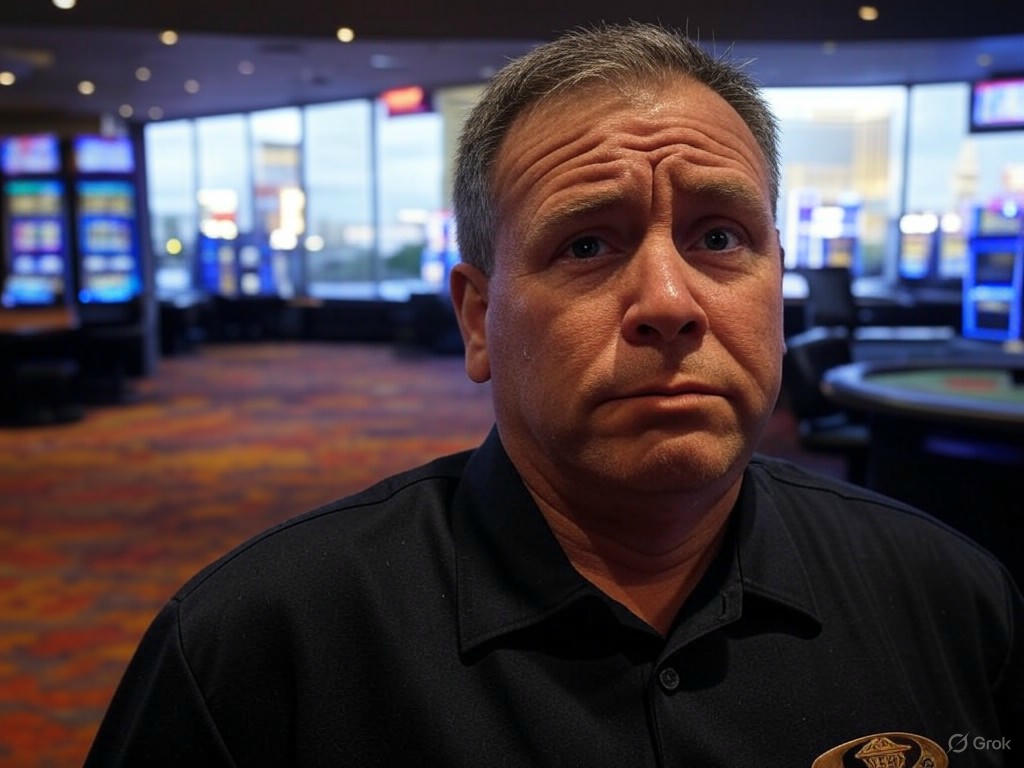Las Vegas, often dubbed the entertainment capital of the world, is facing an unexpected downturn. The iconic Strip, usually buzzing with eager tourists and high rollers, has grown quieter in recent months. Reports of casino dealers being quietly let go have surfaced, raising alarms about the city’s economic health. Behind the glittering facades of Sin City’s mega-resorts lies a troubling reality: a decline in tourism that threatens to ripple through Nevada’s economy.
The layoffs, though not widely publicized, are a stark indicator of the challenges facing the city’s core industry. Dealers, who are often the face of the casino experience, are finding themselves out of work as foot traffic dwindles. Local business owners and employees alike are feeling the pinch, with some warning that the situation could lead to closures if the trend continues. One long-time Vegas worker remarked that the impact could be catastrophic, not just for individuals but for the state as a whole, which heavily relies on tourism revenue to fuel its budget.
So, what’s driving this slump? Several factors seem to be at play. Rising travel costs, including airfare and accommodations, may be deterring visitors from making the trip. Additionally, economic uncertainties on a global scale are prompting people to tighten their belts, opting for more budget-friendly destinations or skipping vacations altogether. The post-pandemic travel boom, which initially brought crowds back to Vegas, appears to have fizzled out, leaving casinos with fewer gamblers at their tables. Some analysts also point to a shift in consumer preferences, with younger generations gravitating toward experiences over traditional gambling, seeking out music festivals or outdoor adventures instead.
The implications of this downturn extend far beyond the casino floors. Small businesses that depend on tourist spending—think restaurants, souvenir shops, and entertainment venues—are bracing for tough times. Nevada’s tax revenue, much of which comes from gaming and hospitality, could take a significant hit, potentially affecting public services and infrastructure projects. If the situation worsens, the state might face a broader economic crisis, with job losses spreading to other sectors.
Yet, there’s still hope on the horizon. Industry leaders are exploring ways to adapt, such as diversifying Vegas’s appeal beyond gambling. Investments in new attractions, conventions, and sports events—like the recent influx of major league teams—could help draw crowds back. Marketing campaigns emphasizing the city’s unique blend of excitement and luxury might also reignite interest among travelers. For now, though, the mood in Las Vegas remains cautious as stakeholders monitor the situation closely.
As Sin City navigates this rough patch, the resilience of its people and the allure of its bright lights will be put to the test. While the road ahead may be uncertain, one thing is clear: Las Vegas must reinvent itself to weather this storm and reclaim its spot as a must-visit destination.
